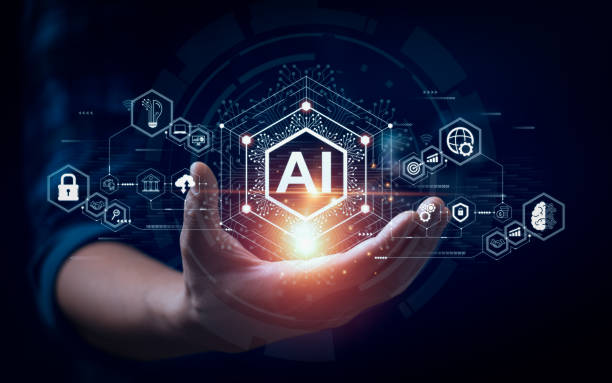Introduction
Artificial Intelligence, or AI, is no longer a concept of the future; it is very much part of our present. But what exactly is AI? Simply put, AI refers to the simulation of human intelligence in machines that are programmed to think and learn like humans. From Siri to self-driving cars, AI has seeped into various aspects of our daily lives.
The Basics of Artificial Intelligence
Types of Artificial Intelligence
AI can be classified into two main types: Narrow AI and General AI. Narrow AI, also known as weak AI, is designed to perform a specific task, like facial recognition or internet searches. General AI, or strong AI, has the ability to understand, learn, and apply intelligence to solve any problem, much like a human.
Machine Learning and Deep Learning
Machine learning is a subset of AI that allows machines to learn from data and improve over time without being explicitly programmed. Deep learning, a further subset of machine learning, uses neural networks with many layers (hence the term “deep”) to analyze various factors of data.
Applications of AI
Artificial Intelligence in Healthcare
AI is revolutionizing healthcare by enabling early disease detection, personalizing treatment plans, and optimizing hospital operations. For instance, AI algorithms can analyze medical images to identify conditions like cancer at an early stage, leading to more effective treatments.
Artificial Intelligence in Finance
In finance, AI helps in fraud detection, risk management, and personal financial planning. AI systems can analyze vast amounts of transaction data to identify suspicious activity, thereby protecting against fraud.
Artificial Intelligence in Education
Artificial Intelligence is transforming education by providing personalized learning experiences. Intelligent tutoring systems can adapt to each student’s learning style, helping them grasp complex concepts more efficiently.
Artificial Intelligence in Transportation
Self-driving cars are perhaps the most talked-about application of AI in transportation. AI technologies, such as computer vision and real-time data processing, enable these vehicles to navigate and make decisions without human intervention.
Artificial Intelligence in Entertainment
AI is also enhancing our entertainment experiences. Streaming services like Netflix and Spotify use AI algorithms to recommend movies and music based on our preferences, making our leisure time more enjoyable.
AI in Everyday Life
Virtual Assistants
Virtual assistants like Siri, Alexa, and Google Assistant are prime examples of AI in everyday life. These AI-powered assistants can perform tasks, answer questions, and control smart home devices with just a voice command.
Smart Home Devices
From smart thermostats to automated lighting systems, AI-powered devices are making our homes more convenient and energy-efficient. These devices learn our preferences and adjust settings to optimize comfort and save energy.
Personalized Recommendations
AI algorithms analyze our online behavior to provide personalized recommendations, whether it’s for shopping, streaming content, or browsing social media. This not only enhances our user experience but also helps businesses target their audience more effectively.
The Benefits of AI
Efficiency and Productivity
AI can process and analyze data much faster than humans, leading to increased efficiency and productivity. For example, AI-powered chatbots can handle customer inquiries 24/7, freeing up human agents for more complex tasks.
Enhancing Human Capabilities
AI is augmenting human capabilities in various fields. In healthcare, Artificial Intelligence assists doctors in diagnosing diseases. In manufacturing, AI-powered robots handle repetitive tasks, allowing workers to focus on more complex activities.
Solving Complex Problems
AI’s ability to analyze vast amounts of data and identify patterns enables it to solve complex problems that were previously beyond human capabilities. This includes predicting natural disasters, optimizing supply chains, and discovering new drugs.
Challenges and Risks of AI
Ethical Concerns
The rise of Artificial Intelligence brings several ethical concerns, such as privacy issues, bias in AI algorithms, and the potential for AI to be used in harmful ways. Ensuring that AI is developed and used responsibly is crucial.
Job Displacement
While AI creates new job opportunities, it also displaces certain jobs, especially those involving repetitive tasks. This shift requires a focus on reskilling and upskilling the workforce to adapt to new roles created by AI.
Security Issues
AI systems are not immune to security threats. Hackers can exploit vulnerabilities in AI algorithms, leading to data breaches and other security issues. Ensuring robust security measures is essential to protect AI systems.
AI and the Future
AI in Future Technologies
Artificial Intelligence is set to play a significant role in future technologies, such as quantum computing and advanced robotics. These technologies have the potential to revolutionize industries and change the way we live and work.
Predictions for AI Development
Experts predict that AI will continue to evolve, becoming more integrated into our daily lives and industries. We can expect advancements in natural language processing, computer vision, and autonomous systems, making AI even more powerful and versatile.
Conclusion
AI is a transformative technology with the potential to change every aspect of our lives. From healthcare to entertainment, AI is making processes more efficient, enhancing human capabilities, and solving complex problems. However, it’s essential to address the ethical, security, and societal challenges that come with AI to ensure it benefits everyone.
FAQs
1. What is Artificial Intelligence?
AI stands for Artificial Intelligence, which refers to the simulation of human intelligence in machines that can think and learn like humans.
2. How is Artificial Intelligence used in healthcare?
Artificial Intelligence is used in healthcare for early disease detection, personalized treatment plans, and optimizing hospital operations.
3. What are the types of Artificial Intelligence?
The two main types of AI are Narrow Artificial Intelligence, designed for specific tasks, and General AI, which has the ability to understand and solve any problem like a human.
4. What are the ethical concerns of Artificial Intelligence?
Ethical concerns of AI include privacy issues, bias in algorithms, and the potential misuse of AI in harmful ways.
5. How does AI impact job displacement?
While AI creates new job opportunities, it also displaces certain jobs, especially those involving repetitive tasks, requiring reskilling and upskilling of the workforce.
